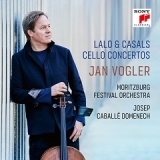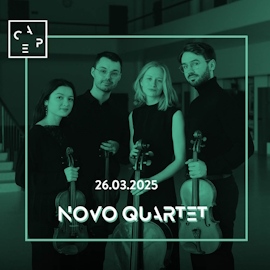Im Lalo-Konzert gefallen die Musiker des Moritzburger Festivalorchesters wegen eines sehr homogenen und plastischen Musizierens. Jan Voglers lyrisches Cello ist in ständigem Dialog mit dem Orchester. So kommt es so zu einem feinen, stil- und gehaltvollen Vortrag. Aber letztlich will der Funke doch nicht überspringen, mir bleibt die Interpretation etwas zu unverbindlich und auch wenig spontan.
Das zweite Werk auf dem Programm der CD ist die Weltersteinspielung des Cellokonzerts in F-Dur von Enrique Casals (1892–1986), einem Bruder des Cellisten Pablo Casals. Es entstand 1946 und ist ein schönes und gefälliges Konzert, dessen zwei ersten Sätze sehr lyrisch interpretiert werden. Im letzten Satz, in dem Casals die Sardana, einen katalanischen Volkstanz verwendet, kommt es zu einem angenehm tänzerischen Musizieren. Insgesamt bleibt die Interpretation aber recht beschaulich, auch wenn Caballé-Domenech das Orchester zwischendurch mal kraftvoll aufspielen lässt.
In the Lalo concert, the musicians of the Moritzburg Festival Orchestra please because of a very homogeneous and plastic music-making. Jan Vogler’s lyrical cello is in constant dialogue with the orchestra. This results in a fine, stylish and substantial performance. But in the end the spark does not want to jump over, for me the interpretation remains a bit too non-committal and also not very spontaneous.
The second work on the CD program is the world premiere recording of the Cello Concerto in F major by Enrique Casals (1892-1986), a brother of the cellist Pablo Casals. Written in 1946, it is a beautiful and pleasing concerto whose two first movements are interpreted very lyrically. Some pleasant dance-like music-making occurs in the last movement, in which Casals uses the Sardana, a Catalan folk dance. Overall, however, the interpretation remains quite calm, even if Caballé-Domenech occasionally lets the orchestra play more powerfully.






















